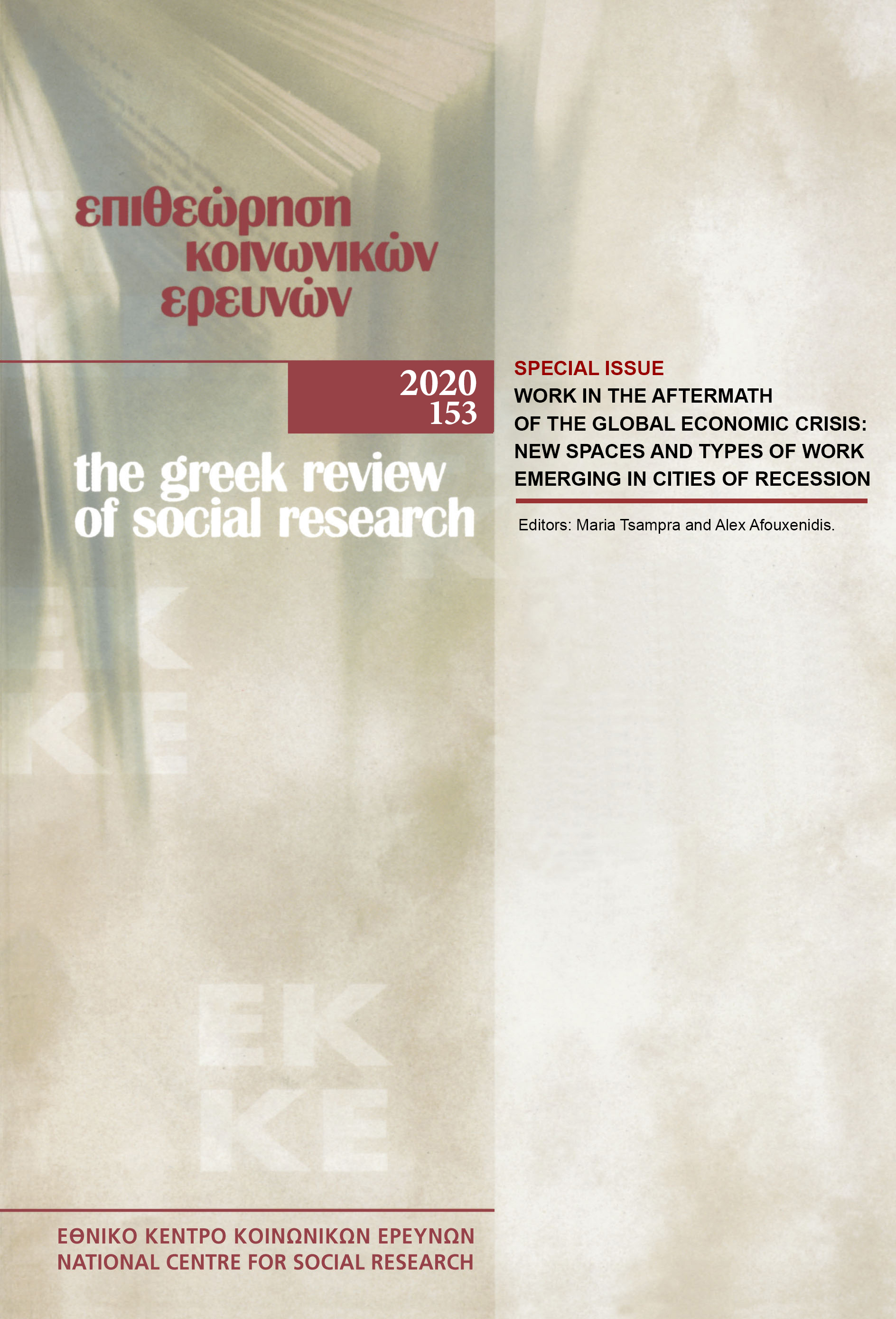The role of micro-enterprises in post-growth urban transitions: An inquiry in Athens and Barcelona

Abstract
This paper brings forward empirical research assessing the potential influence of micro-enterprises to urban post-growth systemic transformations. Athens and Barcelona used as urban laboratories to document the factors (discursive, structural, and institutional) that influenced micro-entrepreneurial adaptation strategies to the post-2008 crisis and thus to discover to what extent the altered discourses and practices of this agency exhibit potential to stimulate wider socio-economic transformations. The field engagement targeted ‘‘conventional’’ micro-enterprises, operating at street-level in traditional market sectors and micro-enterprises operating in the social and solidarity economy. The results indicate that the crisis indeed provided context for path-shaping processes towards alternative urban economic realities in which this particular agency has an important role to play. However, for a transformative process to capitalize, further empowerment, institutional framing and material support needed along with the activation of other types of collective and individual agencies.
Article Details
- How to Cite
-
Koukoufikis, G. (2020). The role of micro-enterprises in post-growth urban transitions: An inquiry in Athens and Barcelona. The Greek Review of Social Research, 153, 83–110. https://doi.org/10.12681/grsr.22342
- Section
- Articles

This work is licensed under a Creative Commons Attribution-NonCommercial 4.0 International License.
Authors who publish with this journal agree to the following terms:
- Authors retain copyright and grant the journal right of first publication with the work simultaneously licensed under a Creative Commons Attribution Non-Commercial License that allows others to share the work with an acknowledgement of the work's authorship and initial publication in this journal.
- Authors are able to enter into separate, additional contractual arrangements for the non-exclusive distribution of the journal's published version of the work (e.g. post it to an institutional repository or publish it in a book), with an acknowledgement of its initial publication in this journal.
- Authors are permitted and encouraged to post their work online (preferably in institutional repositories or on their website) prior to and during the submission process, as it can lead to productive exchanges, as well as earlier and greater citation of published work (See The Effect of Open Access).


